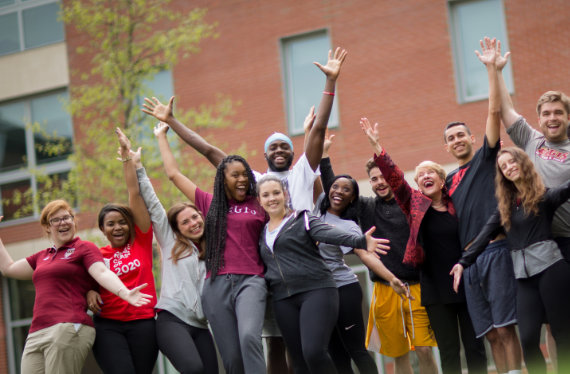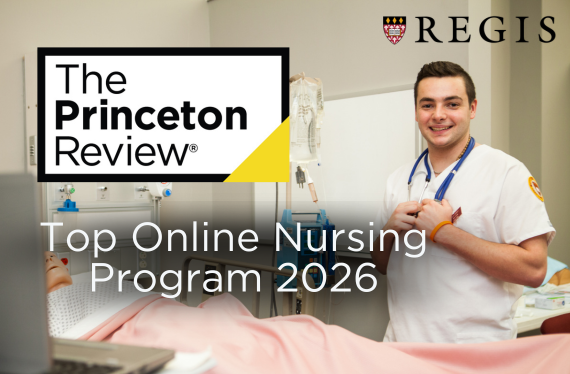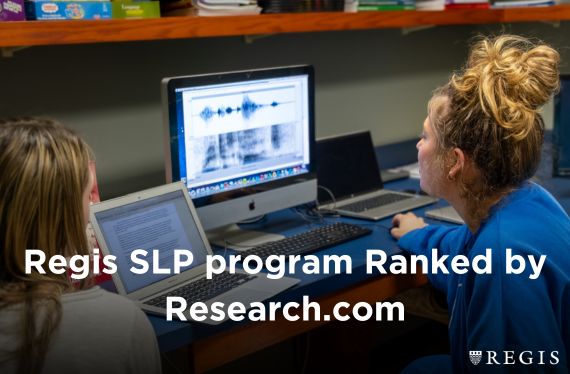Fosters collaboration to find solutions to unmet medical needs
Leading experts from across the country gathered for a forum on the future of brain and spinal cord injury prevention and treatment at Regis.
The panel was hosted by Regis in partnership with the Medical Development Group of Boston, a community of individuals professionally committed to the medical device and other medical technology industry segments and united by the belief that innovation and advances in technology lead to substantial improvements in health care.
Panelists included thought leaders from the Boston University School of Medicine, Harvard Medical School, and Massachusetts General Hospital. Other panelists included the director of research and development at the Johnson and Johnson Medical Devices Companies as well as the director of new product innovation for a football helmet manufacturer.
BU School of Medicine professor Robert Cantu, MD, served as keynote speaker for the panel. Dr. Cantu is an internationally renowned neurosurgeon who has worked with industry, NHL, NFL and other sports organizations to increase public awareness of concussion and help prevent its occurrence among students and professional athletes.
Dr. Cantu presented research that ties total brain trauma, sub-concussive and concussive, to later life neuro-degenerative disease including CTE. Dr. Cantu recommended student athletes should “learn concussion symptoms and never play symptomatic.”
“The forum was very informative in understanding the types of injuries that can be caused by all contact sport and accidents, the consequences of these injuries, and the need for better diagnostic and treatment tools as well as preventive gear,” said Regina Au, principal of new product planning and strategic marketing at BioMarketing Insight and conference attendee.
Presenters spoke about identifying brain injury with CT scans, restoring brain function, and cutting-edge protective equipment. The forum also focused on spinal cord injury and means for stabilization, research on computer interface implants to circumvent spinal cord injuries and the promise of tissue engineering to restore function in severed spinal cords.
“The forum was ground-breaking,” said MDG president Dr. Peter Madras. “We saw the first possibilities of reconnecting severed spinal cords which had never been reported previously and sensors on microchips implanted into human brains which restored movement to paralyzed limbs.”
“There is a need for more research to fully understand the physiological impact of head and spinal cord injuries in order to answer this question; why do some people recover from these injuries and others don't? When this question is answered, scientists and physicians will be able to find a solution to help patients recover from their injuries,” said Au.
MDG Boston forums showcase new medical technology, ideas and opportunities to enhance the professional development of members while benefiting members’ companies through more knowledgeable employees. Visit MDG Boston to attend or for more information.


